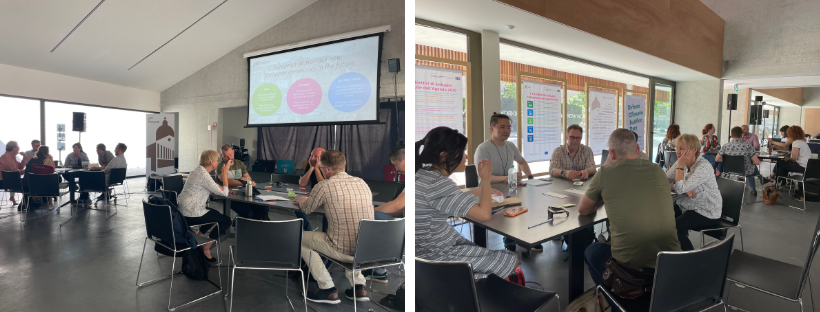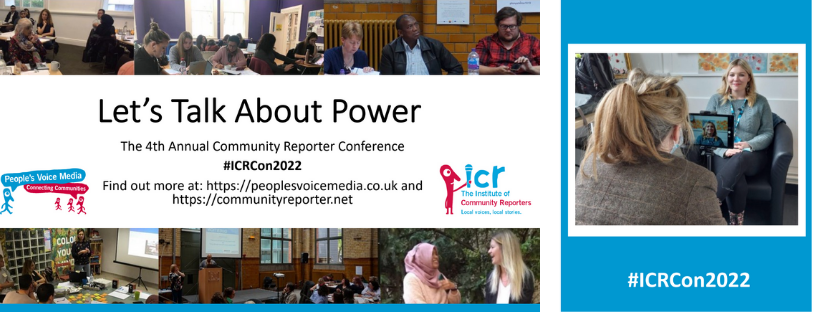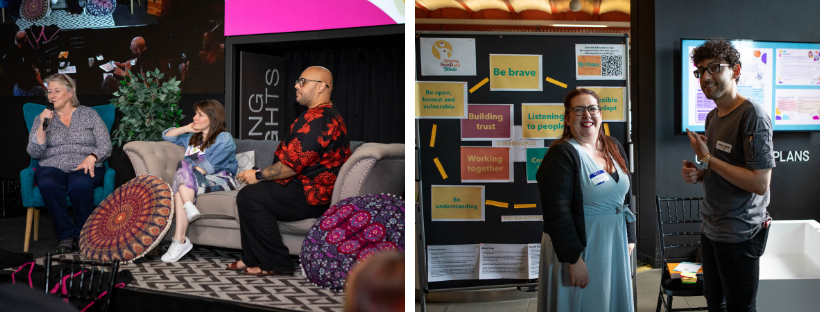WHAT IS THE VALUE OF CO-PRODUCTION?

People’s Voice Media and the Community Reporter Network have teamed up with the Co-Production Collective as part of a UKRI funded project to gather people’s experiences of co-production. We will then be using these stories and working with the storytellers (people with lived experience of co-production) to identify what changes co-production can bring to services, research, and policy.
So, what is co-production?
The Co-Production Collective define it as:
an approach to working together in equal partnership and for equal benefit. For us, this means living our core values. These values – challenging, human, inclusive, transparent – are central to everything we do.
Why are we doing this?
We want to have a deeper understanding of the value of co-production and use this insight from people’s everyday experiences of co-production to support the implementation and use of co-production as a means of change in the areas of services, research, and policy. We also want to acquire a deeper knowledge and understanding of co-production from a wide range of individuals and community perspectives so that we can us it in our own work.
How have we gathered the stories?
We started our research with an open call for contributors, including people with lived experience, professionals, researchers, policymakers to sharing individual stories or group stories of co-production. To gather the stories, we’ve used our Community Reporting method… more on that here:
We matched those that were interested in sharing their stories of co-production with three members of our team who all have first-hand experience of co-producing in a variety of settings. People groups that expressed an interest in sharing their stories were invited to a 30-minute conversation about co-production over Zoom… with a few conversations also being held in-person.
What questions did we ask?
Our ‘conversation starters’ were:
- Can you share with me an experience of co-production?
- We are interested in exploring what worked well and what didn’t.
- We’d also like to know what changes the co-production process helped to create and what impact you feel the impact – positive or negative – that the co-production process has had on people, groups, organisations, services, society etc?
From here, the conversations went in their own unique directions!
How will we use the stories?
Once we have gathered all the stories, we will use them to create:
- An online story archive hosted on the Institute of Community Reporters website – bringing people’s stories together so they can be watched and shared online.
- A findings report that summarises the key learning from all the different stories.
- A YouTube playlist containing short, edited extracts from each of the stories, with subtitles.
We’ve also been running some participatory workshops with different people to help us create these outputs and findings. They should be ready for October 2022 and released publicly!
And, the story won’t end here. We will continue to explore what we have learned and use this to affect change in different places. As a community and project, we are keen to use these insights to not only further our own knowledge and skill around co-production, but are hopeful that these insights show that co-production is something that can make a difference not only to individual lives but to research, services, and policy.



